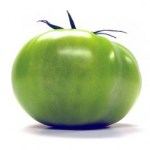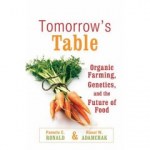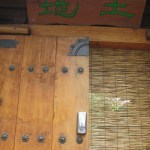
The online debate at The Economist Magazine continues. Dont forget to vote.
My rebuttal is here:
I agree with Charles Benbrook that "Bt crops have helped reduce insect feeding damage and lessened the need for toxic, broad-spectrum insecticides, and as a result, helped build populations of beneficial insects and promote above-ground biodiversity, two key sustainable farm-management goals."
I also wholeheartedly agree with his statements that "Multiple-tactic systems composed of 'many little hammers' offer the best hope for sustained progress" and "Biotechnology can help create new hammers and…
The Economist is running an online debate and we need your vote.
Vote here.
My opening statement:
The number of people on Earth is expected to increase from the current 6.7 billion to 9 billion by 2050 with food demands expected to rise by 70%. How will we feed them? If we continue with current farming practices, vast amounts of wilderness will be lost, millions of birds and billions of insects will die, scarce water will be wasted, greenhouse gas emissions will increase and farm workers will be exposed to harmful chemicals. Clearly, the future of our planet requires that we improve the…
November 1 begins the rainy season in California and it is time for Kori's newsletter about The Market Garden at the Student Farm.
Kori tells us that all over the farm the rains have called forth the hoards of sleeping winter weed seedlings, and the dry, dusty brown is transforming rapidly. It is as though the earth is growing a brilliant green winter coat! Everywhere you look, tiny cotyledons are springing open above the soil surface.
Onn Friday they planted four rows of onions, and were hoping that the promised rains would water them in for us. Instead we had such beautiful weather that…
The most devastating impact on biodiversity is caused by agriculture. Farming is already the greatest extinction threat to birds, and its adverse impacts look set to increase, especially in developing countries (Green et al. 2005).
Thus one of the global challenges for the next century is the need to develop high-yielding varieties that require minimal inputs, so that impacts on biodiversity can be minimized.
An alternative to the "high-input" approach is to expand the number of organic
farms. Because organic farmers do not use synthetic pesticides, their farms support
higher levels of…
Today is the first week of Fall quarter at UC Davis and the Student Farm has harvested some glorious vegetables.
The tomatoes in the CSA (community supported agriculture) basket today came mostly from the farm's Seeds of Change variety trial. The green striped, red striped, orange, dark striped, etc. tomatoes represent only a fraction of the 75 varieties the farm trialed
this year. There are a couple of red slicers in the mix as well. In their newsletter, the Student Farm crew (Eric, Larisa, Sasha, Ari, Ethan and Raoul) asks us customers to observe how the trial tomato varieties compare to…
We are eating well in Davis, California.
Below is an update from Raoul about the UC Davis Student Farm fall planting.
Carrots, beets, spinach, rutabagas, turnips, radishes, daikon, cilantro and fennel are in the solarized beds germinating. We also transplanted broccoli, cabbage, collards, kale, cauliflower, and kohlrabi. Fall crops are on the way.
We need now to protect them from weeds, rabbits, squirrels, bugs, and diseases. If we are successful, everyone eats. If not, the village goes hungry and we go back to hunting/gathering (which would make for an interesting CSA basket).…
in 2007 Yonah opted out of a Bar Mitzvah. His alternative rite of passage was riding a bike from San Francisco to Washington DC with the rest of the family in tow.
His Dad, Matt, is a mediocre selling author whose most recent royalty check for his "breakthrough book" was only four figures. (Two of the figures standing to the right of the decimal point.) Undaunted, he has recently finished a memoir of their epic journey.
Read the first chapter here.
Bill Gates had a lot of thoughtful things to say about technology and social innovation at the recent Techonomy conference, including a nice plug for Tomorrow's Table!
"There's a lot of great thinking [from both the GMO and organic communities], which lead to things you should care about-preserving the environments and feeding people with a decent diet."
Video:
Reinventing Capitalism: How to jumpstart what the marketplace can't
Speaker: Bill Gates, Bill & Melinda Gates Foundation Interviewed by Brent Schlender
http://link.brightcove.com/services/player/bcpid87735931001?bclid=87675…
The…
Korea has a 5000 year history of food and farming. How much can a nine-year old and her mother learn on a two week visit to this land of miracles?
For the first few nights we stayed in a tiny room in a traditional Korean house called a "Hanok" house. There is a courtyard that everyone shares that the owners have filled with lots of stuff including a rabbit named Mimi. In this quiet place, one can imagine ancient times before the rebirth of this powerful nation that was almost totally destroyed by the Korean war (1950-1953). Now, although most cities are dominated by massive buildings and…
Ed Yong recently published a post called "On the origin of science writers" asking that science writers (anyone who regularly writes about science) tell the story of how they got started. The idea is to establish a resource for future writers. I joined the thread and have reprinted it here.
As far back as I can remember I loved to read and I loved the wilderness. In fact my favorite times were reading in the wilderness, preferably in a tree near our mountain cabin, high enough where my brothers could not reach me with stones or snowballs.
I did not think much about being a writer myself until…
George Steinmetz began his aerial adventures on leave from Stanford in 1979. Thirty one years later he has accumulated thousands of photographs from his flying machine. He showed us a sample here at the Aspen Environment Forum, sponsored by the National Geographic and the Aspen Institute.
The Waw an Namu volcano in S. Libya, A 20K peak in the Himalayas, deserts encroaching on farms in China, immigrant tomato pickers in Saudia Arabia, sand basins in the Sahara- all photographed from a motorized paraglider.
The flying man is determined and creative. He has dodged arrows, fled machine guns,…
British kids can more easily identify Japanese cars than native plants and animals, says moderator, Robert Draper here at the Aspen Environment Forum, sponsored by the National Geographic and the Aspen Institute.
American children not readily exposed to nature are more prone to depression, obesity and attention deficit disorder. This is a global phenomenon. What else happens when there is a growing disconnect between a modern society and the biosphere?
Can we draw a link with this disconnect and the loss of biodiversity at an unprecedented rate? By 2050, the majority of our citizens will…
Brilliant talk by photographer Joel Sartore here at the Aspen Environment Forum, sponsored by the National Geographic and the Aspen Institute.
"What can I do to get people to care about the environment? I want people to fall in love with these animals as much as I did so the world pays attention. I need to do a better job but what else can I do? Why should anyone care about mussels? Because they filter our water. We need these things to keep our planet healthy.
We need to take care of our pollinating species. Without pollinators we have to use paint brushes to pollinate our orchards by hand…
More live blogging from The Aspen Environment Forum, sponsored by the National Geographic and the Aspen Institute. Panelist include: Brian Keane, Amory Lovins, Will Wynn, with moderator Jack Riggs.
Brian: Each one of us can and must be part of the energy efficient solution. It is the small little simple things that we do everyday that will make a difference.
Amory: Given the political fault lines in our society, we need to be careful about our language and the motivations that we convey. Eg. auditing, property assessment, and so on. No one wants these things. When we talk to others about…
Climate change is the ultimate threat multiplier that will make other problems such as agricultural productivity worse.
This is one of the conclusions at a panel called "Trusting Climate Science" here at the Aspen Environment Forum, sponsored by the National Geographic and the Aspen Institute.
I am experimenting with liveblogging from the meeting. Lets see how it goes.
The first panel I attended featured Andrew Revkin, Peter Huybers, Mohan Munasinghe, moderated by David Brancaccio.
"The pace of sea level rise is uncertain" says Revkin. It is a distraction to argue about the pace when we know…
When PZ Myers goes on strike, Seed media listens.
PZ has posted a demand for some changes from the Seed management.
All are reasonable and helpful and will make ScienceBlogs a better place. It seems Seed management agrees and soon the changes will be implemented.
If you want a history of Science blogs and details on the dust-up, read Bora's fantastic post.
So dont give up bloggers who have remained- lets keep this place alive, make it better and hopefully some of our colleagues will return.
How do you help people who live on less than a dollar a day?
This is one of the challenges that the Bill and Melinda Gates Foundation is taking on. In preparation for a recent visit there, Raoul and I reread a speech that Bill Gates gave at the 2009 world food prize symposium
It is worth a read.
He points out that three-quarters of the world's poorest people get their food and income by farming small plots of land. So if we can make small-holder farming more productive and more profitable, we can have a massive impact on hunger and nutrition and poverty.
If we are successful, we can also…
Check out this video to see what life is like in Davis, California. If you missed it, dont fret, the Tour de Cluck will be an annual event.
Here is a preview for next year's event: our hens, Oreo and Snickerdoodle.
Clearly, transparency is critical but how much does the source of funding matter if it is fully disclosed?
Among the scientific community, government funded research is generally considered trustworthy and as a benefit for the public good. Still, that view is not universal. I have been accused of "taking government funding" for my research (which is funded entirely from government sources: DOE, NIH, USDA, and NSF). The person asking clearly felt that the US government was not to be trusted and therefore the research funded by the US government was not to be trusted. But what is the…
For the Grow your Own Bakeoff, a blogging event that celebrates the foods we grow or raise ourselves and the dishes we make using our homegrown products, I baked a Swiss chard-Gruyere pie.
Here is the recipe: First, gather as many ingredients as you can from your garden. In our garden, I found multi-colored swiss chard, Kale, chives, thyme and parsley. Our young hens, Snickerdoodle, Lemon Drop, Raven, Cheez-It and Oreo provided the eggs.
The backdrop to our garden is a mural on the side of our barn, painted with California poppies, rice plants, sunflowers and (look closely) a red…











